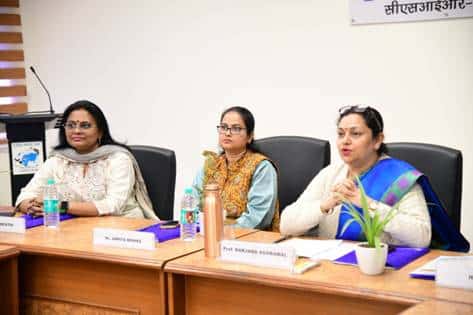Enhancing Science Communication in India

The Council of Scientific & Industrial Research – National Institute of Science Communication and Policy Research (CSIR-NIScPR) recently hosted a significant workshop titled “Need and Significance of Communicating Science in India.” This one-day event took place at their New Delhi premises and aimed to assess current science communication efforts in Indian languages. It also sought to explore strategies to improve public engagement with science across India’s diverse linguistic communities.
The Importance of Science Communication
In her welcome address, Prof. Ranjana Aggarwal, the Director of CSIR-NIScPR, underscored the vital role of science communication in connecting scientific research with society. She pointed out that effective communication in regional languages is essential for inclusivity and broader outreach. “True scientific progress is inclusive,” she stated, emphasizing that promoting science in regional languages ensures knowledge reaches every corner of society.
Dr. Naresh Kumar, Head of PME, echoed this sentiment in his introductory remarks. He reinforced the necessity of disseminating scientific knowledge in regional languages to make it accessible to all. Dr. Manish Mohan Gore, a Senior Scientist at CSIR-NIScPR, highlighted the importance of public engagement. He noted that sharing authentic information about science and technology in regional languages is crucial for fostering understanding and interest among the public.
The workshop aimed to create a platform for dialogue among experts, communicators, and participants. It encouraged discussions on how to enhance science communication efforts in India, particularly in languages that resonate with local communities.
Insights from Esteemed Speakers
The workshop featured a lineup of distinguished speakers from various scientific and media institutions. Shri Deepak Kumar, Assistant Director at the Commission for Scientific and Technical Terminology, addressed the “Current Form, Problems, and Utility of Science Terminology.” His insights shed light on the challenges faced in standardizing scientific terms across different languages.
Shri Balendu Sharma, Head of Digital Media Communication at Microsoft, discussed “The Present and Future of AI and the Digital World.” His presentation highlighted the transformative impact of artificial intelligence on communication and information dissemination. Dr. Santosh Kumar Shukla, Executive Secretary of the National Academy of Sciences, India, explored “Science Writing and Popular Science Literature in Indian Languages.” He emphasized the need for quality science writing that resonates with diverse audiences.
Additionally, Ms. Neha Tripathi, a Digital and Social Media Expert, elaborated on “Different Sources of Scientific Content and Their Authenticity.” Her insights were crucial in understanding how to navigate the vast landscape of information available today. The diverse perspectives shared during the workshop enriched the discussions and provided valuable insights into the current state of science communication in India.
Regional Perspectives on Science Communication
The afternoon session of the workshop focused on regional perspectives, showcasing the importance of local engagement in science communication. Shri Shivanandan, Programme Executive at All India Radio, shared insights into “Radio and Agricultural Science Programmes: Nature and Possibilities.” He highlighted how radio can effectively reach rural audiences and disseminate vital agricultural information.
Shri Samir Ganguly, a Science Writer, discussed “Social References of Science Fiction Stories.” His presentation illustrated how science fiction can serve as a bridge to engage the public with scientific concepts. By using relatable narratives, science fiction can spark interest and curiosity about real scientific advancements.
The discussions during this session emphasized the need for tailored communication strategies that resonate with local communities. By understanding regional contexts and preferences, science communicators can create more effective outreach programs. This approach not only enhances public understanding of science but also fosters a sense of ownership and involvement in scientific discourse.
Observer Voice is the one stop site for National, International news, Sports, Editor’s Choice, Art/culture contents, Quotes and much more. We also cover historical contents. Historical contents includes World History, Indian History, and what happened today. The website also covers Entertainment across the India and World.

